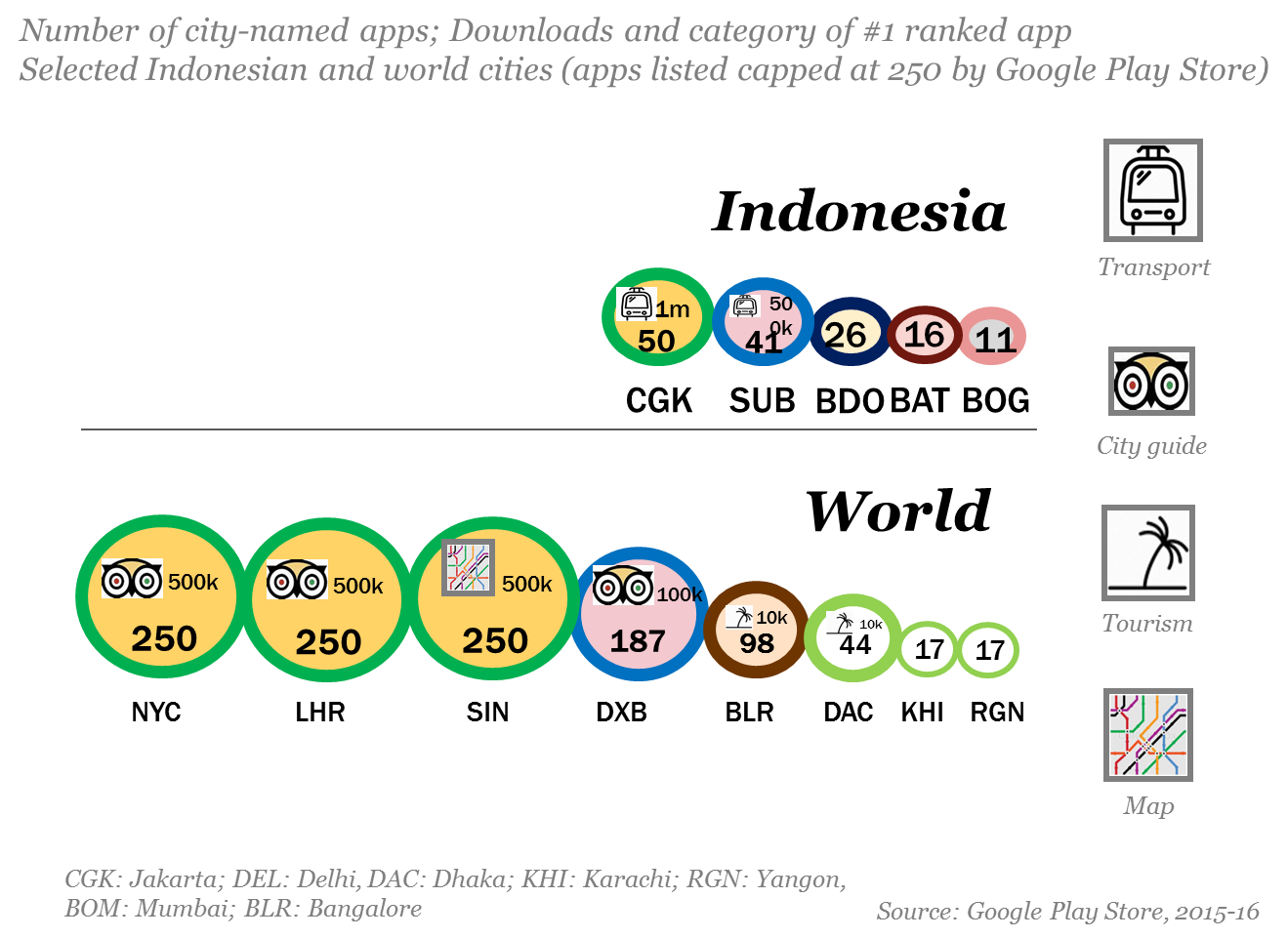Jakarta is Indonesia’s smartest city, but has to look at India for inspiration in doing more popular digital innovation
By: Mohammad Chowdhury - PwC Telecom, Media and Technology Leader for South East Asia, Australia, and New Zealand
Right after taking power, President Jokowi’s administration raised the prominence of technology being in people’s hands, announcing an ambitious vision to create better quality of urban life by harnessing digital technologies. Whilst policy makers grapple with how realistic this vision is, many of us are already “smart” urbanistas, using applications and services to make our lives easier, more fun, informed, and connected.
But which is Indonesia’s smartest metropolis by use of city apps today?
I decided to find out by surfing on Google Play Store from my smart phone and looking at the number of apps available for download which include the city’s name in the title. I then looked at how many downloads there have been of the most popular app. A simple approach, Android-based only, and indicative rather than precise. I looked at 5 Indonesian cities, and, for interest, 8 global ones.
Jakarta, Surabaya and Bandung were obvious choices for comparison. I also opted for Batam and Bogor, given their relative proximities to Singapore and Jakarta respectively.
Not surprisingly, the winner is... Jakarta! But I am surprised that only 50 smart city apps are on offer in the nation’s thriving and Go-Jek and Grab bike filled capital, where Surabaya has 41 and Dhaka in much poorer Bangladesh has 44.

Here are some observations:
- Although Go-Jek bears no city identity in its name, it does come up on most Indonesian large city searches, and overall has experienced 5m downloads on Google Play Store for Androids.
- The number 1 rated app for Jakarta, a city map, has had just 50,000 downloads. This is equivalent to just 0.25% of the population, compared to Mumbai where the most popular app has been downloaded by the equivalent of 20% of the entire city population.
- Jakarta’s figures suggest that the city’s mobile users have more in common with other Asian cities in developing countries, than cities in advanced economies in Europe, Australia or even Singapore.
- Although Jakarta is relatively better developed, the apps uptake seems to be relatively better in several Indian and Bangladeshi cities.
- Following the recent terror attacks in Jakarta – a new app titled Stop Terrorism has attracted many downloads.
- Indonesian city apps are generally logistics-based, relating to bus times and train times. By contrast, World city apps are more qualitative, focusing on tourist advice and travel services. Trip Advisor city guides dominate downloads in many cities, which is interesting.
Of course there is much more to a smart city than apps. In fact, apps indicate more about the smartness of its citizens, than the city itself. What it takes for a city to be smart relates much more to the fixed and mobile telecoms infrastructure, the overlaying information infrastructure, and the collaboration between private sector and public agencies. Although not as highly ranked as one might expect globally, Jakarta is home to possibly one of the world’s most ingenious and scaled city apps – Go Jek. Go-Jek has experienced 5m downloads. If we were to assume half live of the downloaders live in Jakarta, then that does indicate over 10% of the city residents have considered using Go-Jek.
Follow Mohammad Chowdhury @mtchowdhury
Contact us














